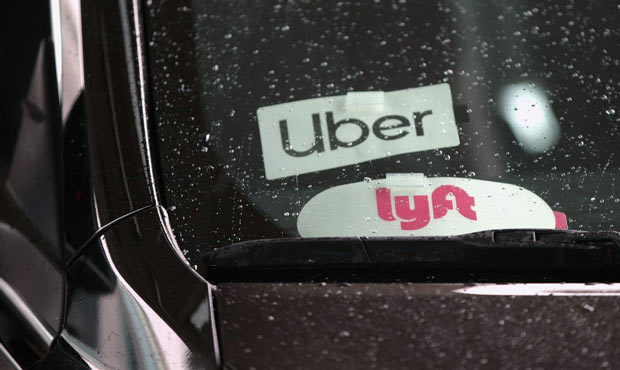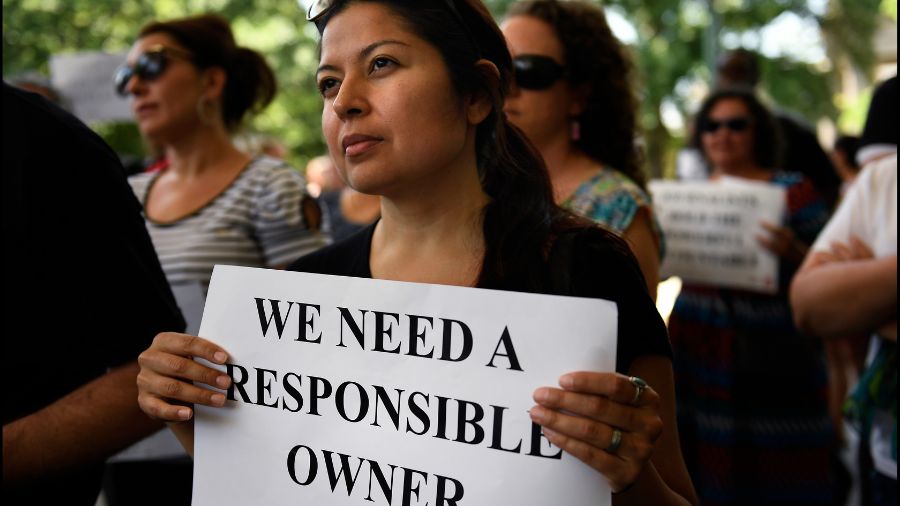Some Seattle rideshare drivers worried Mayor Durkan proposal could limit flexibility
Aug 20, 2020, 1:59 PM | Updated: 6:06 pm

(Scott Olson/Getty Images)
(Scott Olson/Getty Images)
While Mayor Durkan says her new minimum earnings proposal for gig workers will help Uber and Lyft drivers earn a fair wage, some rideshare drivers are speaking out against the plan with concerns about how it could affect their flexibility.
The proposal, announced last week, would require rideshare companies like Uber and Lyft to pay drivers at least Seattle’s minimum wage of $16.39 per hour, through a combination of paying drivers by the minute and by the mile.
“We are glad our proposal enjoys the broad support of drivers, who have been advocating for improvements to their working conditions for some time,” Durkan’s office said.
The proposal would mean drivers would get paid even when there are no riders in the car. Nonprofit Drive Forward, which represents Seattle gig workers, said companies will have to make up for the time being paid out without customers by limiting how many drivers are out on the road — and thus on the clock — at any one time.
Local Uber, Lyft drivers protest low wages as others across country strike
“In order to control the rate, the companies have to control driver supply; they don’t get a choice in this,” said Drive Forward CEO Michael Wolfe.
Drive Forward, which has received financial support from rideshare companies, said this proposal would mirror a New York City law last year that resulted in drivers having limited flexibility and some drivers even not being able to work at all.
“We would like to see the City of Seattle not just copycat New York, which is an entirely different market from Seattle,” Wolfe said. “They should be innovative, they should be thinking of new ways to address these issues.”
Rideshare driver Beverly Waters, a former Lyft Driver of the Year, said Lyft combined with social security make it possible for her to earn a living. She is afraid the proposed ordinance would impact her flexibility or prevent her from working altogether if only certain drivers are allowed to be logged on at a time.
“The beauty of rideshare is the ability to turn on and off the app and decide to drive when and where I want to,” she said. “Being an independent worker is critical for my circumstances and the potential to earn a living with the freedom to drive on my own schedule.”
Driver Terry Broyles said he supports a minimum wage for drivers, but he shares Waters’ concerns.
“My biggest fear is not being able to access the app when I want on a flexible-type schedule, because the extra income is great for my retirement,” he said. “With the cost of living in the Seattle area, I’d hate to get priced out.”
Driver James Lockhart said the model could end up hurting part-time drivers most of all.
“It isn’t fair toward my other fellow drivers who are part-time drivers and won’t be able to get on when they have the access,” said Lockhart, adding, “I don’t think it’s fair that the mayor or any government agency should come into a business and say, ‘Hey, look, this is what we want you to do, and this is how we want you to do it.’ I don’t go sit at her doorstep and tell her how to run her office.”
Drive Forward said it would instead like to see a minimum earning standard of $27.50 per hour as a floor that no driver can fall below; anyone below that standard would be bumped up to meet it, while anyone above it would get to keep the extra.
Mayor Durkan’s office issued the following statement in response:
Mayor Durkan has long advocated for better wages for gig work. The Fare Share wage ordinance proposed by Mayor Durkan is the first step to guaranteeing critical worker protections for some of our most vulnerable neighbors. It was drafted after one of the largest outreach efforts ever to rideshare drivers with the input from more than 10,000 drivers in our region.
During the COVID-19 crisis, we have seen the devastating consequences facing gig work industries, both from being on the frontlines of the pandemic and from the appalling lack of worker protections provided to TNC drivers. Our proposal will increase wages by 30% for those drivers and will be critical to providing a financial safety net for these families.
The majority of TNC drivers in Seattle are from low-income or communities of color and drive to support their families. As our country grapples with stark racial inequities, it is unconscionable to allow an industry to continue to pay communities of color a sub-minimum wage and work impossibly long hours to survive.













